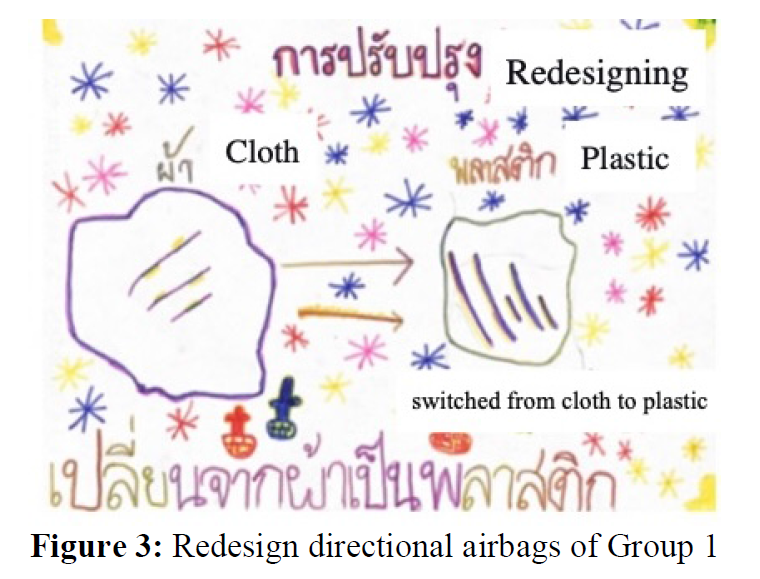The Development of Grade 3 Students’ Collaboration and Teamwork Competency Using STEM Inquiry-Based Learning
Main Article Content
Abstract
This classroom action research aimed to study the best practices in developing collaboration and teamwork competency of 23 Grade 3 students through STEM inquiry-based learning. Data were collected from collaboration and teamwork competency assessment forms, teacher logs, and artifacts. Data were grouped according to the collaboration and teamwork competency level criteria. The research result found that students had higher collaboration and teamwork competency in all components, namely, being good members and leaders (15 students) showed level 3 in testing prototype, collaborative work process (20 students) showed level 3 in redesigning, and relationship building and conflict management (16 students) showed level 3 in redesigning. In addition, two good practices were found: integration between the design process and the key characteristics of inquiry to promote collaboration and teamwork competency and using probing questions to help students explore and collect empirical evidence to design artifacts through the design process.
Article Details

This work is licensed under a Creative Commons Attribution-NonCommercial-NoDerivatives 4.0 International License.
References
Braun, V., & Clarke, V. (2006). Using thematic analysis in psychology. Qualitative Research in Psychology, 3(2), 77–101.
Nilubon, C. (2023). Developing teamwork and communication competencies of Grade 1 students through STEM learning using inquiry-based learning (Master’s thesis, Kasetsart University).
Samahito, C. (2014). Organizing learning experiences based on STEM education in early childhood education. Journal of Education Review, 30(2), 102–111.
Khamta, N., Phanphruaksa, K., & Latuang, T. (2023). The effects of inquiry-based learning (5E model) integrated with STEM education on Grade 6 students’ learning achievement and problem-solving skills (Master’s thesis, Burapha University, Chonburi).
King, D. and English, L. (2016). Engineering design in the primary school: applying STEM concepts to build an optical instrument. International Journal of Science and Education, 38(18), 2762-2794.
Pimthong, P. (2023). STEM education instruction (2nd ed.). Bangkok: Sunthorn Film Co., Ltd.
Saifa, Y. (2014). Concepts of STEM learning management. Unpublished instructional material, Department of Elementary Education, Faculty of Education, Chulalongkorn University.
Institute for the Promotion of Teaching Science and Technology. (2014). STEM education: Science, technology, engineering and mathematics education (1st ed.). Bangkok: Author.
Office of the Basic Education Commission, Ministry of Education. (2021). Teamwork competence. Retrieved January 12, 2025, from https://cbethailand.com/download/6640/
Office of the Education Council. (2019). Core competency framework for students in basic education and lower primary levels (Grades 1–3). Bangkok: Office of the Education Council.
Office of the Education Council. (2021). Guidelines for developing students’ competencies in basic education. Bangkok: Ministry of Education.


